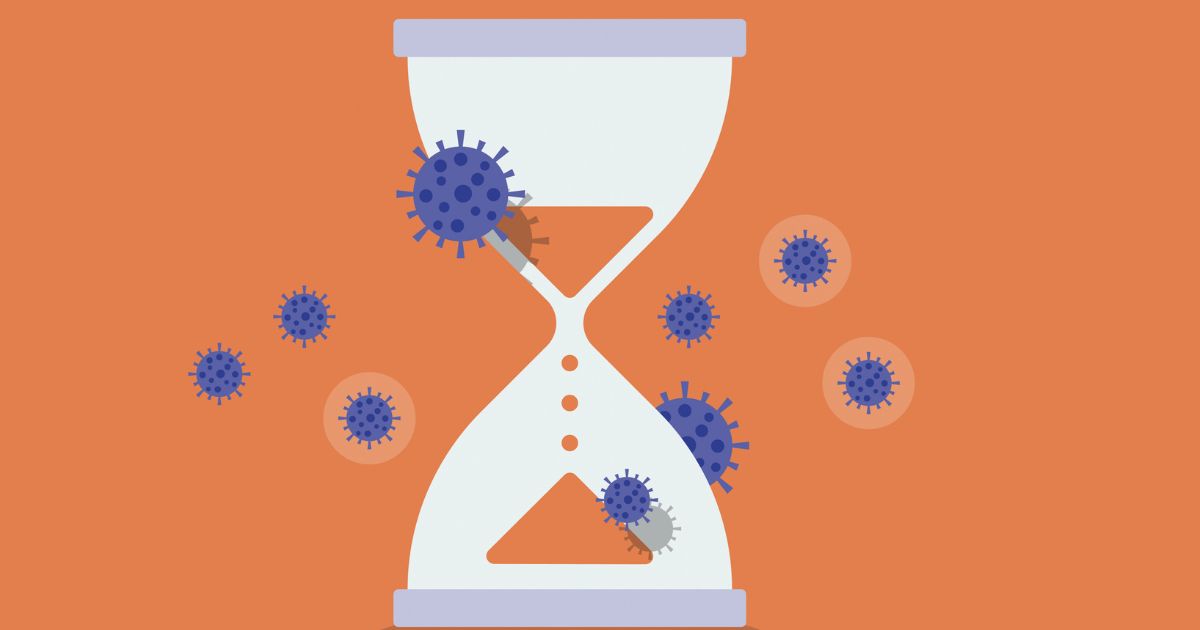As the world grapples with surging COVID infections, a new study cautions that every encounter with the virus increases the risk of long COVID, dispelling the notion that subsequent infections are mild.
Even seemingly mild cases may have a cumulative impact, leading to chronic health issues such as diabetes, kidney disease, organ failure, and mental health problems.
The research, led by epidemiologist Benjamin Bowe and colleagues, tracked 138,818 US veterans with SARS-CoV-2 infections over two years. Their findings reveal a concerning trend: each reinfection escalates the risk of long COVID in multiple organ systems. The adverse effects worsen with each subsequent infection, challenging the belief that repeated brushes with the virus are inconsequential.
Increased Risk Of Long Covid
Long COVID, characterized by multisystemic symptoms with potential lifelong consequences, affects a significant proportion of those who contract SARS-CoV-2, with estimates ranging from 10 to 50 percent. Global estimates now indicate that approximately 65 million people suffer from long COVID, emphasizing the urgency of understanding its mechanisms.
The study suggests that the health consequences of two infections are more severe than one, and three infections worse than two, indicating a cumulative nature of long COVID. While the study focuses on US veterans, similar trends have been observed in broader studies, including one involving people aged 18 and over across 10 Canadian provinces.
McGill University statistician Sianne Kuang and her team note that this study adds to the growing body of evidence linking COVID-19 reinfection to long-term symptoms. However, they emphasize that studies demonstrating this increase in risk are still limited in number and generalizability.
Another study, yet to be peer-reviewed, examined data from 1.5 million people in the US, comparing the severities of initial and subsequent infections. It reported an increase in long COVID after reinfections with variants following Delta and Omicron. The exact cause, whether due to reinfection in general or changes in newer SARS-CoV-2 strains, remains unclear.
The virus’s impact on the immune system is a critical factor, particularly in depleting memory T cells, essential for long-term immunity. SARS-CoV-2 infiltrates these cells, triggering their self-destruction programming, which may contribute to more severe and frequent outbreaks of diseases such as pneumonia and RSV.
Wastewater testing indicates a resurgence of COVID infections in many countries, raising concerns about the virus’s continued mutations. The emergence of the JN.1 strain, also known as Pirola, highlights the virus’s adaptability, with a single mutation rendering it more challenging for immune systems to combat.
This mutation reduces the effectiveness of past vaccines and infections, underlining the virus’s ability to outsmart existing defenses.
As the holiday season approaches and new surges of infections are reported, experts worry about the potential consequences of allowing the virus to run rampant. A group of clinicians, scientists, disability advocates, and journalists has penned an open letter to US President Biden, urging increased support for individuals facing the enduring challenges of long COVID.
In a landscape where the virus continues to mutate and infections surge, understanding the cumulative nature of long COVID becomes imperative. The call for heightened support, research, and preventive measures underscores the urgency of addressing the long-term impact of each encounter with the virus.








Leave a Reply
You must be logged in to post a comment.